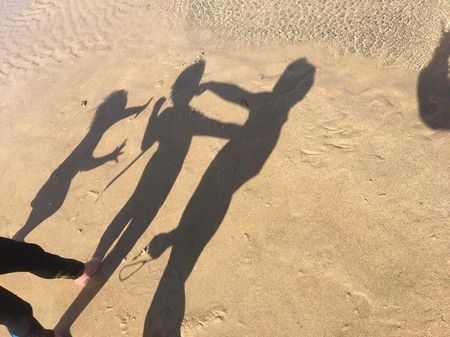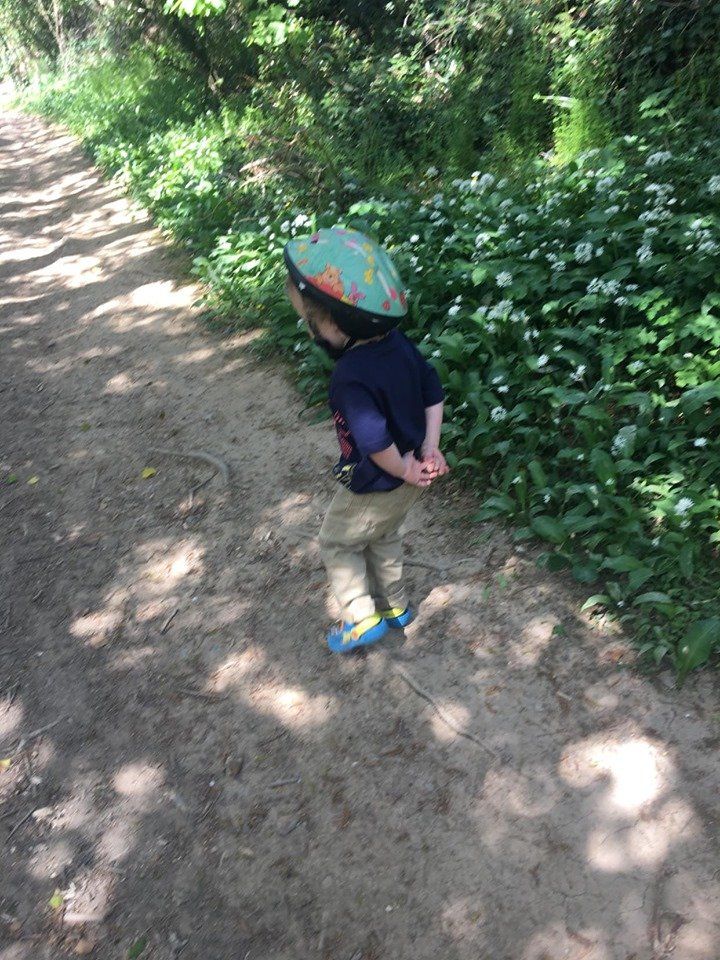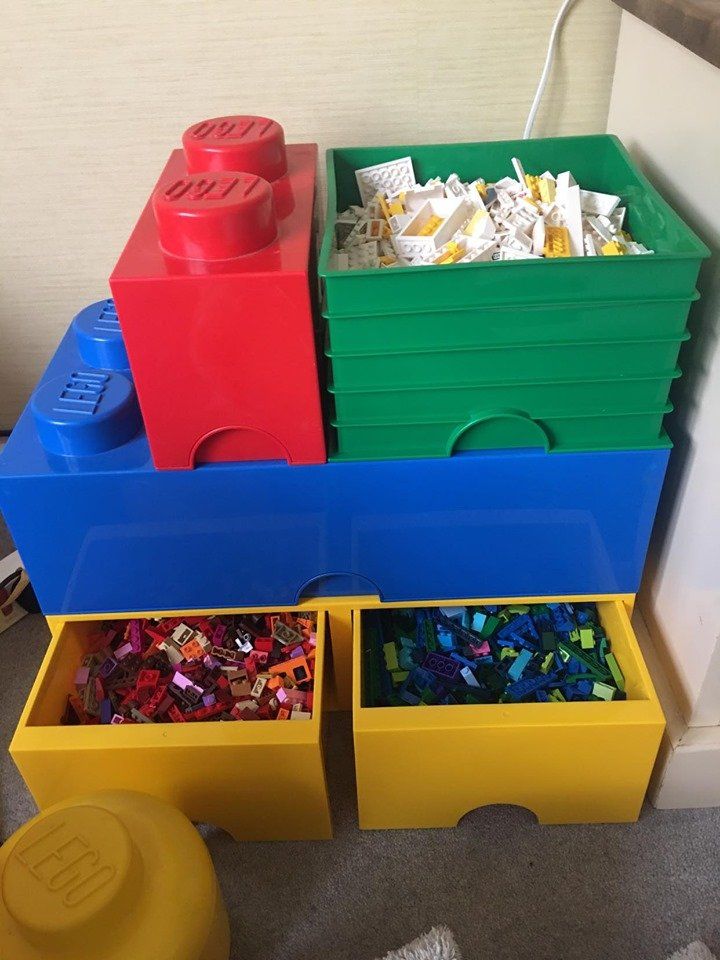Hang on (in there)
Sarah Mundy • 6 May 2020
I have spent this week being more reflexive than reflective. The exact opposite of my last blog, where I talked about all the things I was learning from the lockdown. This blog is very late, highlighting how hard it is to actually think when you are running on empty. The drain of being a full time mum, full time psychologist and full time house keeper are taking their toll (although my partner does help, I can’t take all the credit!).
My wonderful children have decided that I shouldn’t even be attempting home schooling as I am not a proper teacher, as well as questioning my ability as a mother. So much for fun activities, board games, learning through nature etc. I’m on the edge! There is a reason we were designed to be social animals - we are meant to have contact with more than four people.
Ground Hog Day
The soundtrack of my house, aside from Crazy Frog on repeat (yes really, I don’t know whether to laugh or cry about this!) is becoming like Ground Hog day. I literally hear “mum, mum, mum, mum” (at increasing volume) until I pay full attention to whichever cherub is shouting at me. The most annoying is when my eight year old, who is lolling on the sofa whilst I rush around the house, asks me to get him a glass of water. He will not get himself one even when he is on the edge of dehydration. I know I’m supposed to choose my battles but I’m not quite sure I can give into this one.
I’m getting frustrated with my children being so repetitive, but what about me? I’m not sure who would win on the repetitive stakes. If I had a pound for every time I said:
“Hang on”
“Coming”
“Can I just finish this?”
“Can someone lay the table?”
“Sorry, I really am coming”
“What were you trying to show me?”
“I’ll be there in a minute” (which is normally actually about 10 – no wonder my children have a poor concept of time!)
“No I haven’t finished yet” (when my little one comes into my office at 9:30 in the morning asking if I’ve finished my days work, and then showing real upset on his face which makes me feel dreadful)
“We can’t have cake for breakfast”
“The ice-lollies are not ready yet” (they take 2 days and we only put them in the freezer 5 minutes ago)
I would be a millionaire by now!
Toddler-Tastic
My toddler has started showing ridiculously toddler like behaviours (I’m not sure why I am surprised, it’s age and stage appropriate) and I have no respite from them. It’s endearing the first few times, but not being allowed to walk up the stairs first, put sun-cream on him or eat my own food (he obviously prefers mine to his, despite them being exactly the same) is becoming testing. He was adamant that he had treacle on his pizza this evening. Thank goodness Olive Oil looks very similar as I’m pretty certain he wouldn’t have eaten it otherwise!
Even our idyllic cycle rides to the beach are now a battle, he believes he is bigger, better and more important than everyone at the moment (that wonderfully egocentric and narcissistic stage they go through) and refuses to accept that he cannot yet cycle, certainly not as far as the beach. When I manage to persuade him onto the back of my seat (in ways that I really shouldn’t if I’m following my advice!) he spends the majority of the journey telling me to go faster (“come on mum, Blaze power”) which is normally physically impossible. Alternatively, he asks to get off, when there are any bumpy patches. The novelty for him being on a bike has worn off and he dawdles along with the rest of us trying to get some exercise (but not being allowed in front of him so walking with our bikes!). I’m not sure why I have been finding his innocent curiosity, stopping to look at every flower he passes, as frustrating. It’s not like I have anywhere to go.
“Can I come with you?” is an incessant request (actually an order rather than a question), even when I’m taking a trip to the loo – the contrast between limpet behaviour and needing to be independent: “I can do it myself” (even when he can’t and has to start right from scratch if something isn’t quite as his head thought it should be happens) is quite extreme.
He’s learnt to roll his eyes, stomp his feet and, when I am trying to get us out for our daily walk he takes three steps then decides that it’s hilarious (without any warning) to fall to the floor, yanking my hand and stopping us. He seems to associate me with Morph (for those of you who remember the joys of Tony Hart), with no part of my body being free from pulling/yanking/kicking and stretching. The tantrum that ensued from the local shop not having a gingerbread man was a sight to be seen. And he won’t go to bed, nor sleep through the night. I regularly wake up with a foot in my face. The incessant nature of looking after toddlers was something I had forgotten, with work and socialising serving a much-needed rest. Hats off to those who are full-time parents. I’m not sure I could do it.
Practice What You Preach!
Noticing I have been less able to manage full days (or even hours) being playful, curious, accepting and empathic towards my children, I realised that I needed to start to do what I have been supporting other parents with for the last 20 years - if I was dishing out advice, I should, I mean could, really be trying to put it into practice myself!
I looked back over my Parenting Handbook, re-read my more hopeful blogs at the beginning of the lockdown, and turned to social media, which I now sort of understand (although can’t tell the difference between “stories” and “posts” yet!) and find quite useful. There are some regular posters who always hit the spot, both in terms of bringing me back down to a calm state and accepting that I can’t get it right all the time, and others who are good at reminding me what my children need from a psychological perspective.
Looking back, I think my mantra in my first blog was a bit too ambitious (although a good thing to aspire to!). There are a few areas that I have adhered to (such as making more mistakes than usual) but many others have fallen by the wayside. How on earth could I have thought I was going to declutter my house with three children in it at all times? (although I did spend 12 hours sorting Lego into different colours, which was actually quite therapeutic!). I needed to re-read my mantra and remind myself which parts are now important to me, and how I get myself back into that headspace (you’ll find out next week whether it worked or not!).
Help and Humour
The Instagram accounts that I have found really helpful in relation to remembering my children’s needs, and looking after my own, include #the_psychologists_child, #mamapsychologists, #valueaddedparenting and #parenting.littles. They offer some useful suggestions of phrases, evidence why young children need a focus on connection before anything else, as well as how to minimise burnout in parents. #fiveminutemum is also great at providing creative ideas for things to do with your children, when your brain literally stops thinking, and the TV becomes a parent.
I also love seeing pictures and quotes from some of those humorous mums (and dads) on social media. If you need a laugh (which we all do, particularly at the moment) there are lots of funny souls out there – I especially like The Unmumsy Mum
and Michael McIntyre’s recent YouTube video
is hilarious.
Children are struggling with the “new normal”
Although we have a “new normal” it seems as though children are feeling a great deal of loss about what they had before, and we, as adults, can’t guarantee that their future will look the same. Children of both friends and clients are showing anxiety about this in different ways – disrupted sleep, wetting themselves, becoming preoccupied with COVID, withdrawing and becoming low. We need to keep supporting them with these, labelling them for them as well as helping them understand what is going on, as best we can. Tina Payne Bryson has written an article in the New York Times about how Discipline Looks Different in a Pandemic
– well worth a read.
In a resource I hastily pulled together, Parenting in Lockdown, to help you and your children cope with these unprecedented times I highlighted three areas (which I then changed to four in my next blog!) to concentrate on, to keep you all functioning as best you can with so much uncertainty and anxiety. If you, like me, need to move back from the reflexive to the reflective just have a think about whether you are focusing on these - far more important for yours, and your children’s emotional well-being than pretty much anything else, at the moment.
1. Self-Care:
be kind to, and look after, yourself. Don’t put too much pressure on (I have no idea how I expected to both work and home school at the same time) and make sure you actively try to calm both your mind and body.
2. Your Attachment Relationship:
with your child: prioritise moments of connection and minimise getting into power struggles (think PACE, and about connecting before correcting behaviour).
3. Explore with you child how they are managing:
if they are very little you can make some guesses and see how they respond. They may need help linking their behaviour and feelings with the wider context of what is happening in the world.
4. Develop a coherent story together about these strange times.
Help them understand what this is all about, as well as you can, and despite all the uncertainty we are facing.
Reflect and notice the positives
Even the process of writing this blog has made me feel more hopeful and allowed me time to reflect on how I can get myself and my children back to a calmer and happier state.
I am remembering how delightful parenting a toddler can be (even if it is delightfully exhausting). My little one spends a lot of time singing, his favourite songs being “You are My Sunshine” and “Let it Go” (with Elsa’s dramatic hand movements!). When I loosen up and relax into play, leaving behind my fretting about my late assessments or the poor families that I see who are really struggling, some of the things we do together are so much fun.
Our conversations remind me of how curious and imaginative a 3 year old is...
Toddler: “What’s this?”
Me: “A rock” (clearly I wasn’t in the most creative mood; he knew it was a rock)
Toddler: “A rock? No it’s a dinosaur’s brain”
Toddler “Why do bananas have skin? So goats can eat them”.
He’s like a sponge at the moment, learning from his brothers (good and bad!) as well as from his dad and me. It would be amazing if he had friends to play with, and if I had more time to do the things I need to do so I could attend to him properly when I am with him. It's not perfect, far from it, but I am going to make sure I try to cherish those positive moments, of which there are many. I will make a real effort this week to notice all my children more, and create time for just being and chatting with them. I might even join my toddler in a little dawdle!
I came a cross a good quote on Instagram today (although can't remember where it was from): “Human Beings are not Human Doings”. It made me chuckle as well as think!
A Crowdfunding Update
I can’t actually believe it, but we have met our target of £10,000!
It feels almost unreal but the Parenting Handbook and Please Stay Here – I Want You Near are going to be ordered this week. I would like to thank the team around me who have been just amazing: Rachel Millson-Hill (illustrator), Claire Payne (marketing), Adam Young (film maker) and Rebecca Ritson (editor). Trying to fit this project in amongst everything else going on has been tricky, and although everyone has had their hands full they have always managed to grab time to support me with this.
We have had pledges from all over the world; the US, Spain, UK, Canada, Australia and New Zealand. They are still coming in so we may be able to get the second book in the series out sooner than expected (Rachel, get your pens at the ready!). Please do continue to share and pledge to pre-order the books if you haven’t done so already at www.crowdfunder.co.uk/parenting-through-stories. I had an email from a therapist in Canada today wanting to buy the whole series so we need to get cracking!
I hope this week is manageable for everyone and that you find moments of joy.
Sarah
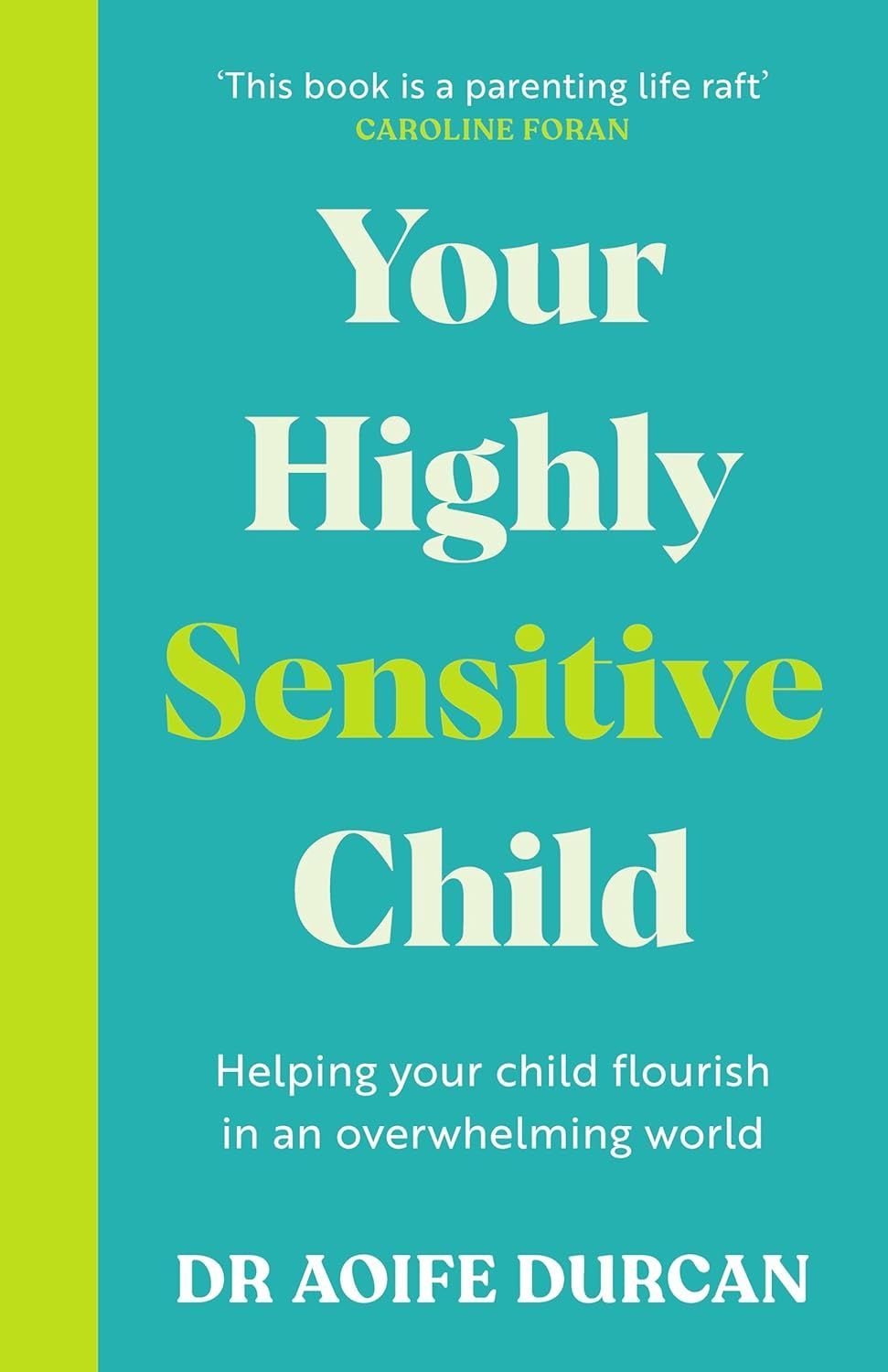
“My biggest piece of parenting advice is to try your best to let your child feel really seen by you. Even when their behaviour is confusing and you don’t understand, let them know you are trying to and that they mean the world to you” The goal of the book is to help parents understand their highly sensitive child as well as provide us with some tools to help them flourish. She talks about wanting children to “feel understood, validated and loved for who they are deep down…and empowered in whatever way their wonderful selves are wired”. This fits so beautifully with my main approach in therapy but oh so relevant to parenting and relationships in general – the PACE model (Playfulness, Acceptance, Curiosity and Empathy). A clear and compassionate read “It is perfectly normal for some children to seek more connection and soothing. They may want more hugs, more closeness and more holding, and that is not something we need to fear or pathologise”. I could tell straight away what a good clinician Aoife must be from the way she writes – with such connection, empathy and understanding of both parents and children’s experiences. As a parent who has (what I’d now call a highly sensitive child) it really connected with me on a personal level. Her explanation of psychological theories is amazingly clear – something which is sometimes lacking in books written by professionals. This is particularly impressive as she beautifully validates emotive topics (such as sleep and our own history). Summary This book so beautifully focuses on children and adults and, I suspect, many of us with highly sensitive children would fit the profile ourselves. It will be a great help to many – providing ways to support both our children but to help us flourish as well. I knew a lot of the theory and ideas in the book (as a psychologist of 20 years I was relieved about that!) but for parents there is a wealth of new knowledge and for me it was a useful reminder. Here is a breakdown chapter by chapter: Chapter 1: Understanding your sensitive child Aoife talks about what sensitive means (something I would love to explore further with her in terms of temperament, neurodivergence and early experiences – all of which she describes but something I want to know more about). Aoife describes “the difference between high sensitivity and these other forms of neurodivergence is that they encompass features of a distinct brain style beyond sensitivity alone”, acknowledging that there can be concern that identifying a trait of high sensitivity may lead to a missed diagnosis of other forms of neurodivergence and that it has been somewhat controversial a term in the neurodivergent community. She talks about the importance of co-regulation (something I bang on about a lot!) and describes goodness of fit (how well our child’s environment fits their unique needs) which was a good reminder to me that my children need different things to thrive. Throughout the book Aoife weaves in case studies, and I love the way she shares a deep understanding with other parents who have often experienced “huge amounts of self-blame and shame” when looking after their highly sensitive child. I love her deeper dive into sensitivity, where she outlines Dr Elaine Aron’s main characteristics of sensitivity with the acronym DOES (depth of processing, overstimulation, emotional reactivity and sensing the subtleties). Sometimes I thought I was reading specifically about my son (and sometimes myself!). Chapter 2: Your child’s window of tolerance “If we keep coming back to the premise that our children are acting mainly from their emotional brain and an underdeveloped ability for impulse control, it helps us understand a little more. The more we pause ourselves and imagine how it feels to be in their shoes, their behaviour often makes sense”. She describes highly sensitive children as orchids, with very big hearts and highlights that there is an increased activation in areas of the brain which are associated with awareness, integration of sensory information, empathy and action planning (I’m going to ask more about this research when we have our live). It made so much sense that children with more finely tuned nervous systems, who detect danger more easily than others are more likely to be on edge. A much better way of understanding children who are struggling than thinking their behaviour is bad – they are just responding to what signals their body is sending to them. After helping us understand what may be going on for highly sensitive children, Aoife talks about the window of tolerance, sleep, transitions and the three R’s (regulate, relate and reason). I scribbled a lot on this chapter as it resonated so much with me and served some lovely reminders to me as a parent and psychologist, particularly when Aoife highlighted how children can become ashamed of their actions (that they have little control of) and how anger can turn to tears when we respond with empathy and kindness. Chapter 3: Our own life history I love this chapter! Many parenting books forget that we are key to our child’s emotional wellbeing and leave us out! Aoife talks about our own critical voice, comparing ourselves with others, vulnerability and our emotional and physical health. She outlined the RAIN of self-compassion model (Recognise, Allow, Investigate and Nurture) which was new (and helpful) to me and, I suspect, draws on her experience of working with adults I suspect). It is written warmly and compassionately and is much more comprehensive than you normally see. There was not one inch of parent shaming which can sometimes slip into books (inadvertently). Chapter 4: How we learn to protect ourselves We often focus on what we as adults are getting wrong but Aoife clearly outlines how we as well as our children learn to cope to protect ourselves (which fits really nicely with attachment theory which I draw on heavily in my work). She describes “protectors” such as perfectionism, people-pleasing, self-soothing (I’d always thought of this as a good thing) and control. Helpfully, this chapter includes practical grounding and soothing techniques. Chapter 5: Temperament, being ‘shy’ and understanding anxiety “ separating from \us will often cause our more sensitive souls stress. The stress makes so much sense (we are their safe place)l…In an ideal world, we really want the childcare setting to be another nurturing, warm and attuned relationship our child has in their life” Aoife focuses on some of the things that highly sensitive children may find harder in this chapter – whilst often reframing them with a positive spin e.g. the ‘pause to check’ system). She talks about separation anxiety, temperament, childcare, big emotions after school and helping children move into their “optimal zone of tolerance” to help them learn new skills without feeling overwhelmed. I like the way worries are framed as a powerful coping protector that manifests when we feel scared, sad or like we are not good enough…it helps to go straight to the underlying need our child may be communicating rather than get caught up in the cognitive content of the worries – to feel safe, loved, validated, understood and accepted, True confidence comes from knowing deep down at your core that \you are a worthy person, and you are lovable as you are. We can be confident and quiet, and being ‘shy’ is not a negative thing According to Aoife, 70% of \highly sensitive people identify with the trait of introversion (not mine). I love the term “introverted extravert” (a new one to me) whereby the extrovert in someone gets a lot from the external world but their nervous system is easily overstimulated (remember DOES from chapter 1?). there are some \helpful tips on supporting children who are described as “shy” – both for them and for others trying to get them out of their shell (more about the others’ needs than the child’s?) Certainly something I've been guilty of). Chapter 6: The empath “Learning to be with painful feelings, without trying to fix them, is so connecting for our relationships -especially for empaths. We need to understand that we can't talk them out of their feelings. The only way their emotions move is by giving them the space to be felt. It is only then we can begin thinking of ideas that may help ” This chapter helps (worn out) parents understand their child's big feelings. Aoife talks about anger, getting suck in emotions and how important it is not to dismiss them, which can lead to a deep sense of confusion. She describes how her own deep-feeling nervous system has experienced an emotion so strongly that it takes time to lift and, when it hasn’t been seen and understood, it takes longer to process. This was so helpful for understanding my son, who picks up on emotions so easily (he even knows when I'm getting my period before I do!). Chapter 7: Criticism and being ‘good’ Criticism can feel so painful for highly sensitive children – even when it's meant as constructive feedback. Aoife talks about how important it is to validate their experiences, even if their reaction seems a bit extreme to us! She describes ways to help them find their voice and move forward when feeling criticised. This chapter also talks about how highly sensitive children can get really upset about doing the right thing or feeling like they have disappointed you. I love her point that we may expect more from them as they are so emotionally in tune and articulate – but this can miss the point that they are driven mainly from their emotional brain with limited impulse control. She talks about boundaries and children who apologise too much (or too little!) as well as how to support them when they feel misunderstood. Chapter 8: Navigating painful emotions “Sadness can be a familiar emotion for a sensitive soul. Feeling the world deeply and noticing how painful life can be sometimes, and experiencing grief, loss, feeling excluded, rejection and being misunderstood can evoke feelings of sadness and loneliness.” Its so hard when our children are experiencing deeply painful emotions and we feel a bit stuck as to what to do., this chapter talks about trust, grief, sibling relationships and feeling different, outlining ways you can support your child to make sense of their experiences and emotions – through their connected relationship with you. Chapter 9: Understanding our strong-willed children Aoife goes back to basics in this chapter, delightfully explaining why some of the traditional behavioural methods of parenting are a particularly bad fit with our more strong-willed children (as I have learnt through experience over the years!). she talks about the need to give children a sense of agency, control and flexibility and provides a lovely reactivity guide (screening list) to help us understand what our children may be communicating with us. Again, Aoife highlights the importance of co-regulation as well as understanding and managing our response. She also describes how repair is key – something I talk about a lot. Time in is outlined (as an alternative to time out…something that I’ve talked about before in previous posts). Chapter 10: Sensory sensitivities As psychologists (particularly those of us that trained 20 years ago!) we weren’t well versed in the importance of sensory profiles – but it is now so clear that our mind and body work together and that we need to be aware of both if we are going to support children’s emotional and behavioural development. This chapter outlines the different senses and how our bodies read our environment, which is hugely different for each and every one of us. She talks about both parents' and children’s sensory needs and how we can empower sensory-sensitive children. Chapter 11: My wish for every parent The last chapter of Aoife’s book is beautifully written, outlining what she wishes for parents. She talks about comparison traps, trusting yourself, asking for help, avoiding self-blame and bringing more fun and play into your (and your children’s) lives. I am always a bit biased to chapters about parents as we are so important if we are going to be the best parents we can be…and Aoife highlights this wonderfully here.
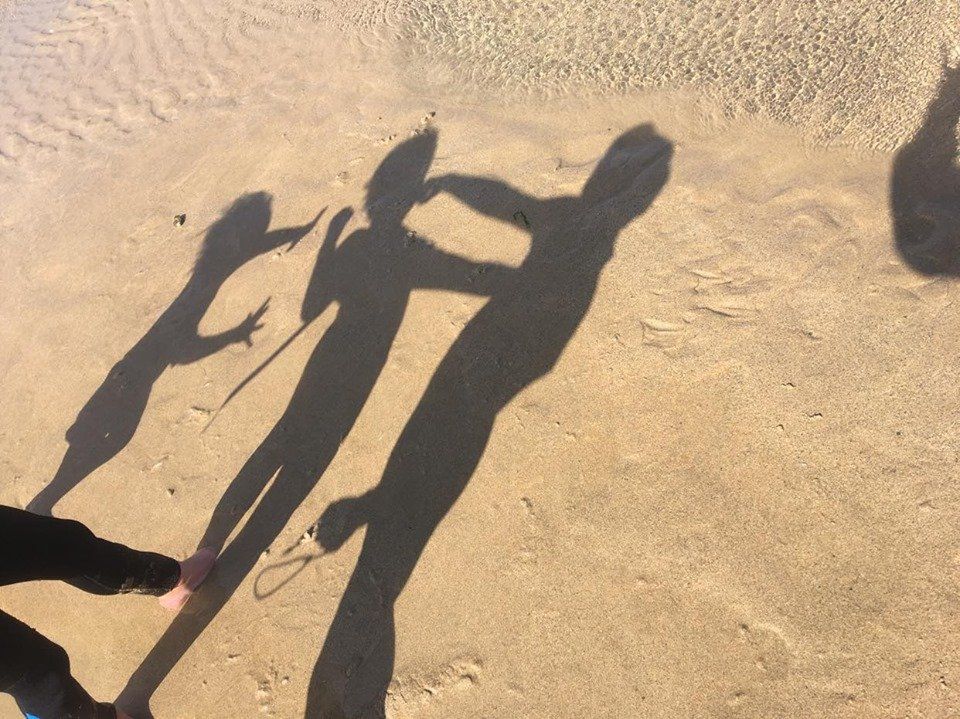
“Playing with our kids and really getting to know them is a little like scuba diving. From above the surface of the water, it’s hard to know what’s really happening down there under the waves. But when you take the plunge, you discover this whole other world: dynamic, real, fascinating, beautiful and full of life” (page 5) Why is play important? · Play is in children’s nature – it’s their first language and helps them learn with creativity, joy and connection · It builds crucial skills and reduces unwanted behaviours. Children build confidence, resilience and self-understanding through play. And with this comes a reduction in fighting, rudeness and tantrums (a reduction not an extinction – these are all part and parcel of childhood!) · It gives children appropriate ways to express and process their emotions and can be a powerful way to process what has happened and heal after difficult experiences. · It can help us connect with our children and enjoy being with them. It helps us understand their inner world and delight in them, building their self-esteem What if we don’t know how to play? (something I hear from lots of parents) · If we struggle to play it’s not our fault – our brains grow and change since we were children. · We have to relearn what it means to think and play like a child · For those of us who haven’t had playful parents when we were growing up it may be harder – but it’s never too late to learn What are the strategies that the authors talk about? This is a very brief summary – it’s well worth reading the book for a full exploration with lovely illustrations, example and science behind the strategies. · Think Out Loud o Why? This helps children understand their thoughts, feelings, wishes, intentions and desires more. When we do this it helps them learn that others can understand them and help them understand themselves. We help children to pay attention to what is happening inside themselves so they can develop positive, conscious, international responses rather than the default reaction with no awareness! o How? We do this by observing and narrating what we see in our children’s play, commenting on mental and emotional stages. We do this by observing and attuning, coming up with a hypothesis, saying it out loud (don’t worry if your guess is wrong – your child normally lets you know!) · Make Yourself a Mirror o Why: help children understand their emotional life and enhance their connection with and empathy for others. o How do we help children exercise the empathy muscle? (love this term!). Observe and attune into what your child is feeling with your body, face and voice, activate your child’s mirror system and remember empathy is mainly conveyed non-verbally (as well as verbally) · Bring Emotions to Life o Why: help children recognise, manage and express feelings. o How: observe and attune (as you may have noticed, we always start with this!) watching for emotional cues, act out your part adding emotions to your character (if your child invites you into their play) – alternatively, touch on emotions as the narrator of their play. · Dial Intensity Up or Down (this feels more about general parenting that play) o Why: this helps children regulate their emotions and actions when they are struggling and helps them learn that someone will be there for the when out of control. o How: Observe and attune – looking out for your child becoming dysregulated. Chase the why (I love this phrase) – see if you can work out what their dysregulation may be about? Look beyond the behaviour (if you want to learn more about this read Mona Delahooke’s work – it’s brilliant!). Dial the intensity up (through cooling things off ) or down (through starting low and going slow) Regulate and repair o Scaffold and Stretch: Why? Help children learn resilience in the face of difficult situations and show them others can show up when things get hard. How? This is about helping your child face something difficult in a low stakes way – through play. Firstly, observe and attune – to see if they may benefit from some support. Then offer scaffolding and stretching – it’s getting the balance right between not taking over when there’s a little struggle (my tendency!) and not letting them struggle so much they get stressed and don’t learn… Narrate to Integrate · Why? using stories (obviously my favourite thing!) to help children understand and deal with difficult situations. · How? Observe and attune (did you guess that?!), oscillate (between different halves of the brain – use logic and emotions), integrate and elevate. Set Playtime Parameters Why: boundaries teach children how to make positive decisions and help them feel safer. Children need limits, connection, structure and nurture How? Set some rules for play by taking care of yourself and of the space (try not to make it too chaotic!). Remember you are the pit crew not the race engineer (!). If you’ve had to set a limit then acknowledge the desire but keep the limit and offer alternatives. The authors set some good ideas for transition tips (as transition out of play can be HARD!). Finally, Tina and Georgie end with the importance of being playful outside of the playroom. For those of you that have read my parenting handbook and know about my love about the PACE model you’ll have guessed that I was pleased to see this in! Overall, a great read…well worth a delve
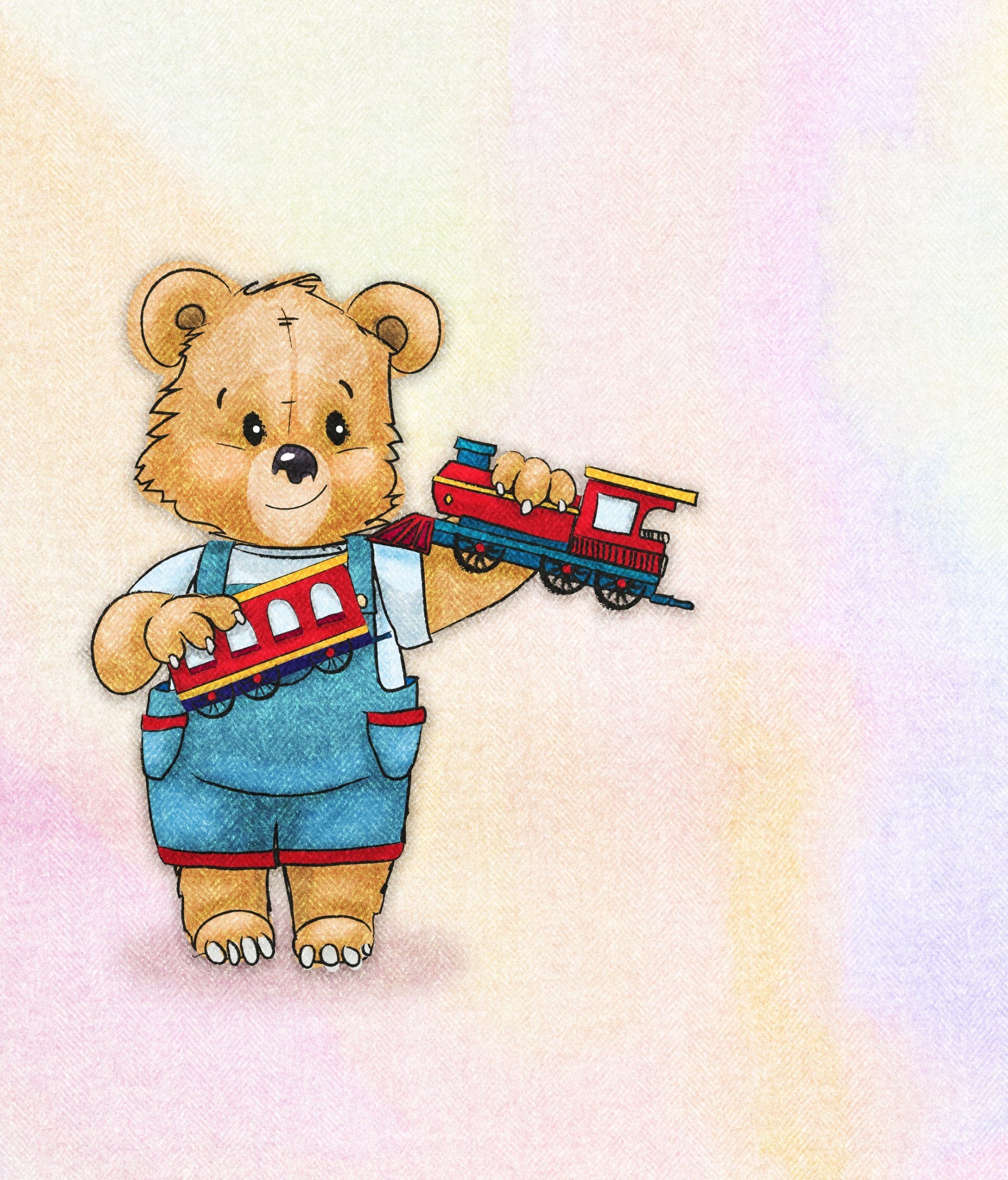
Little children can be so confusing (and confused!). Sometimes it’s hard to know what they need from you - a three-year-old demands that she wants her cheese in a big piece one day and then cries because it’s not cut up the next. She wants you to hold her hand to go to the toilet in the morning, but later gets cross when you try to do the same. We’ve all been there, faced with the - sometimes baffling - behaviours of the small humans that surround us, wondering how to respond to their inconsistent requests. Perhaps it’s reassuring to realise that these seemingly random behaviours are actually quite natural - stages through which each child progresses. In a bid to help you support your growing pre-schoolers more effectively, this blog talks about some of the things (there are many!) happening inside their heads and how you can support them with what’s going on. What’s Happening Inside a Three-Year-Old’s Brain?
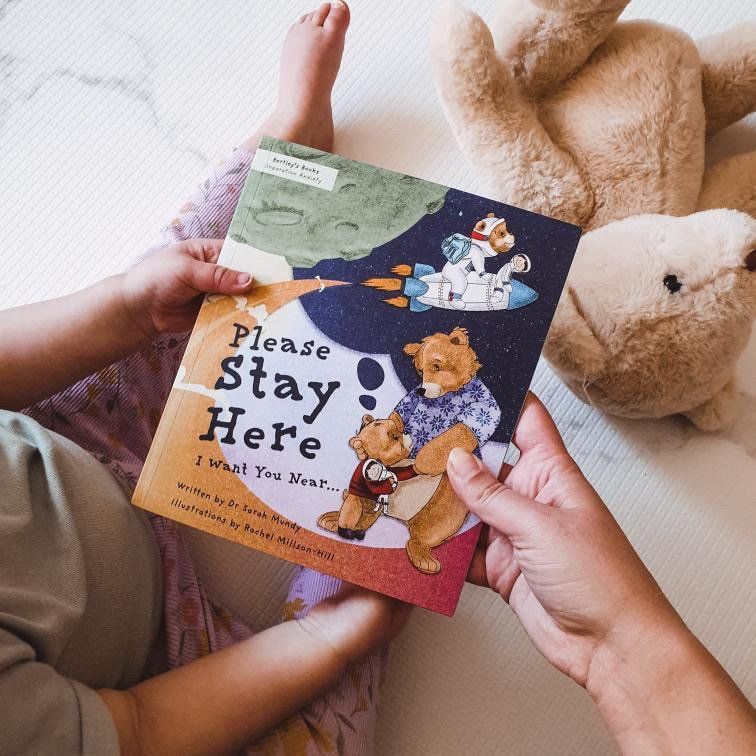
What was your favourite story when you were growing up? Was it a traditional fairy tale like Cinderella? Was it a popular picture book like The Very Hungry Caterpillar or The Gruffalo? Or was it a great adventure story like CS Lewis’ Narnia series or JK Rowling’s Harry Potter? Mine was Dogger by Shirley Hughes. Funny that the first book I wrote was about separation anxiety! For many of us, sharing and reading books was an important part of childhood, even more so before the advent of distracting screens and 24/7 streaming. I have fond memories of curling up in bed, half asleep, as my mum or dad read to me complete with silly voices and giggles aplenty. It's not just books though - you can make your own stories up too. I tell my little one a story about “Grizzly Bear with the Curly Hair” every night. It’s evolved to be a lovely family tradition, with my older children sometimes coming to join in. This is a wonderful way to stimulate both mine and my children’s imagination and what I most love about it is how the narrative is co-constructed – I am no longer allowed to be the sole story-teller, my son has to be part of it too! A 2018 research study found that nowadays only 30% of parents read to their children daily and I can’t help feeling that’s a bit sad. Especially given the many benefits of sharing story time go far beyond pure entertainment.
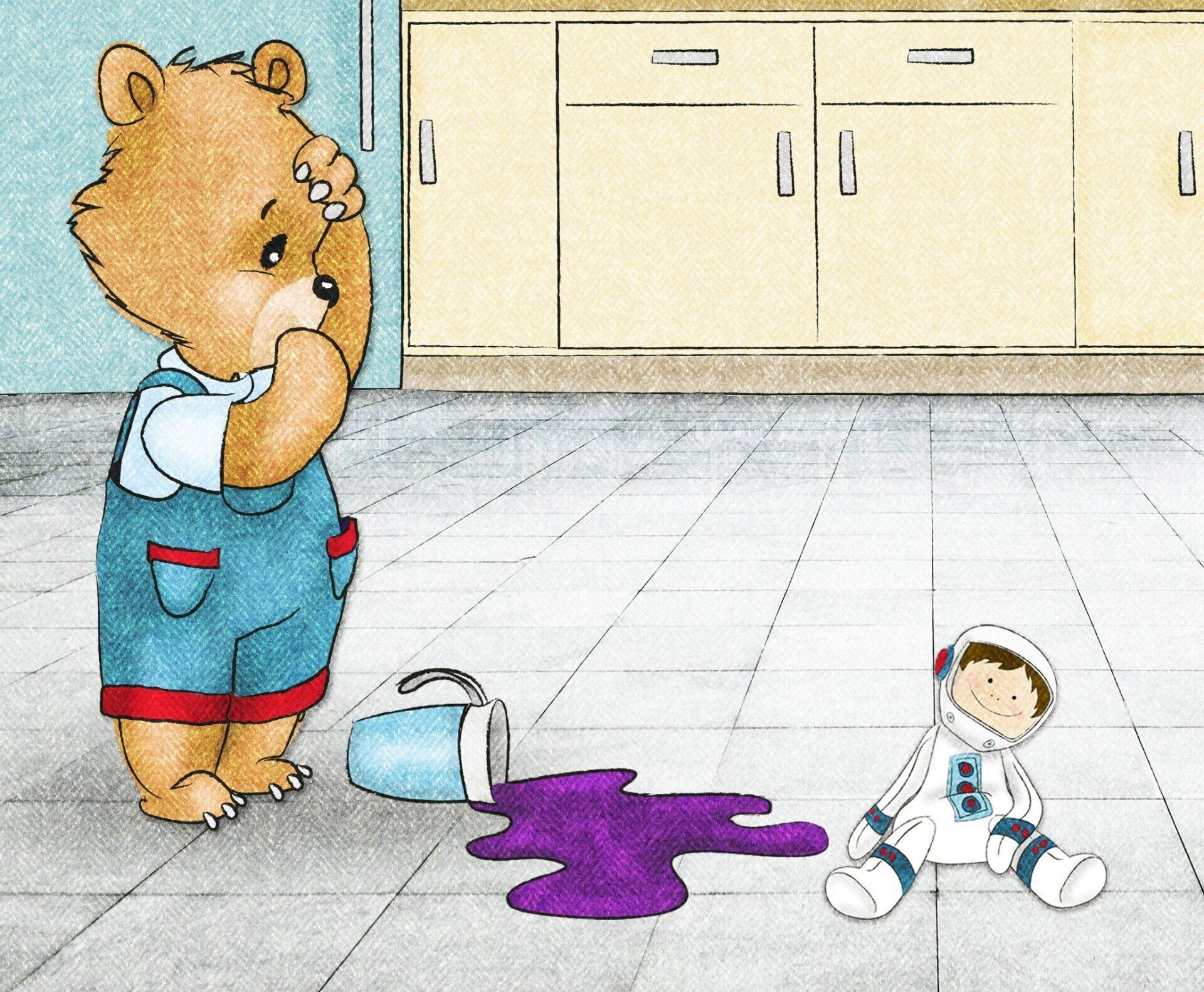
I thought I’d do a post on guilt and shame, feelings which are often used interchangeably but, from my understanding are pretty different. A quick whizz through some child development When we are little, particularly when we start testing the boundaries during toddlerhood, parents need to intervene to keep children safe. For those of you with little ones the word “NO” probably comes out more than you would like it to! This is a normal part of development – children exploring without an understanding of risks, and needing adult involvement to know when to stop. When a child is asked to stop doing something, which was most probably led by curiosity (can I touch that hot thing in the fire place?!), they are likely to experience shame. It’s not a nice feeling but is quickly regulated when a parent explains their motive and repairs the rupture in the relationship. “I’m sorry that I raised my voice, I know you were just exploring but it’s dangerous to touch fires” and so on. This gives the message that the parent is still there for the child and that they are accepted for who they are. The parent is showing them that their behaviour not OK, but that they are. This sort of parenting, when reasonably consistent, leads to a child feeling guilt rather than shame. “Oops, I shouldn’t have done that, how can I make amends?” (obviously not so clearly thought out for little ones but you get the gist). .
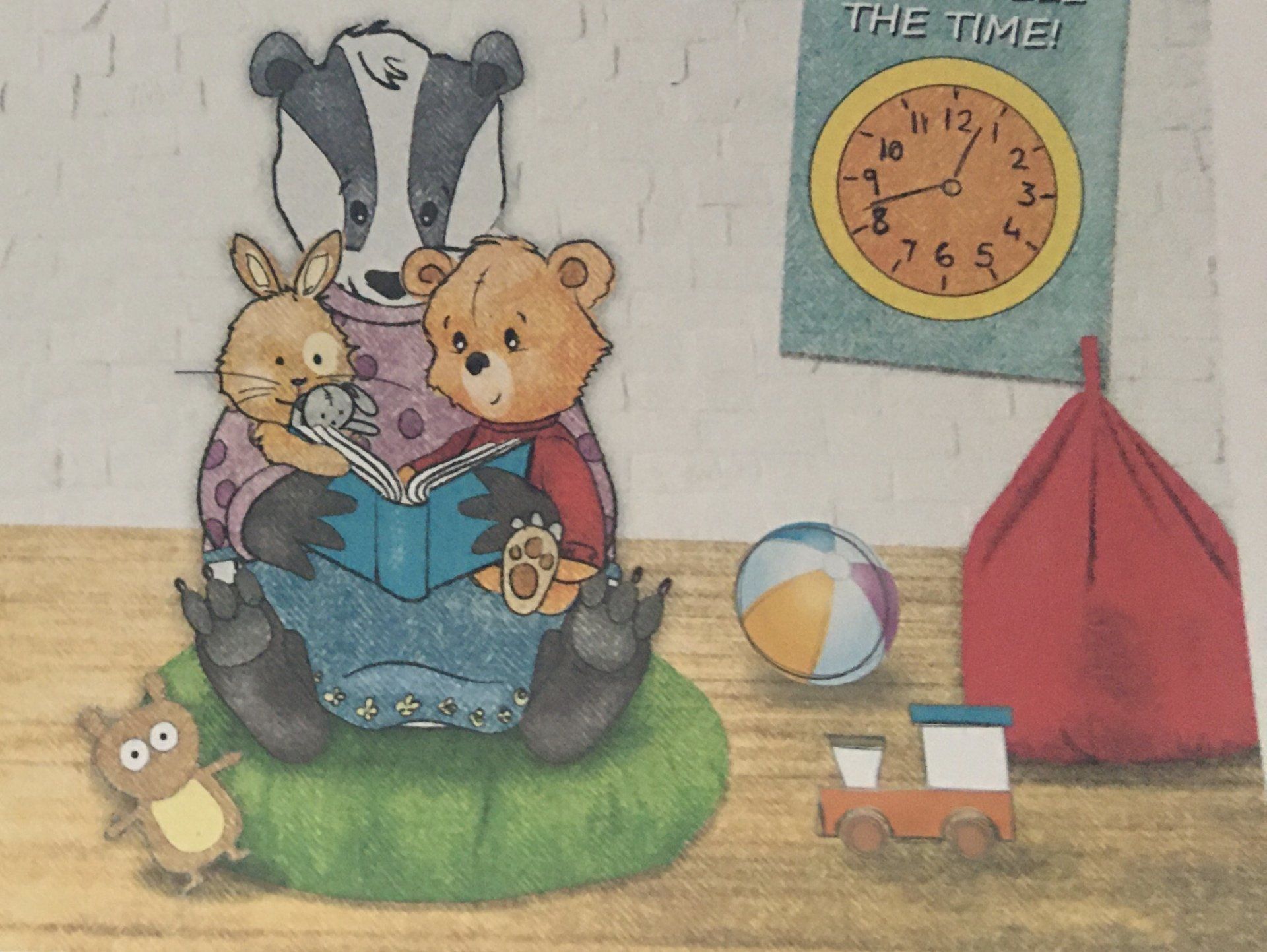
As a newborn, we look to our parents for everything. To feed us, to comfort us and to protect us. If they give us this safety and security, a healthy emotional bond develops. Research shows that this attachment relationship is a crucial building block of a child’s development, helping them to grow socially, emotionally, behaviourally and intellectually. But what happens when children begin to spend time with other caregivers, outside of the home and away from their parents? Do they develop similar relationships with the nursery staff, childminders or pre-school teachers that look after them? And what does this mean for you if you’re working in Early Years?
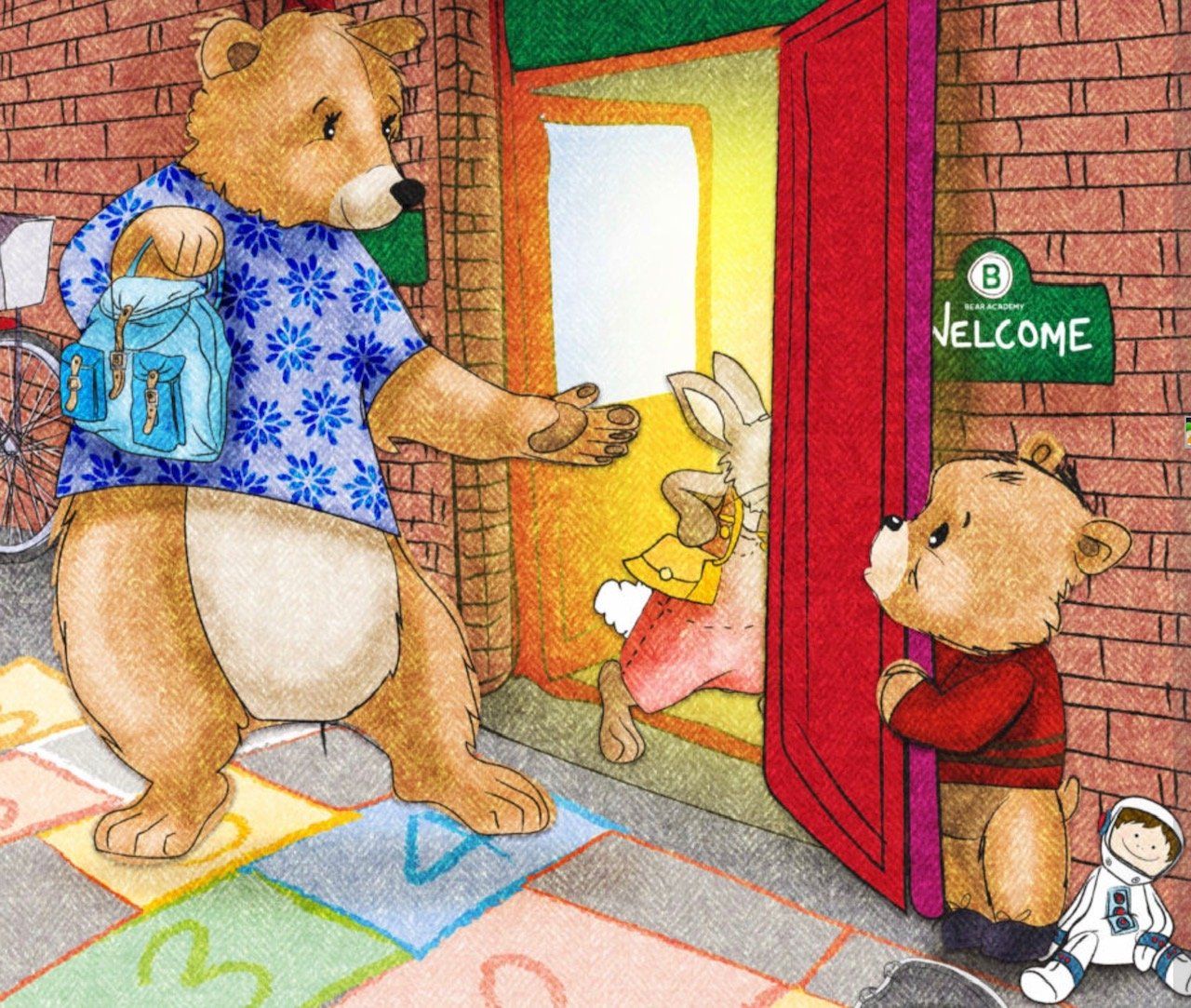
If you work in an early years setting, you’ll be quite familiar with the scene. You’re welcoming the children and getting them settled at the start of the day, checking in with them and showing them what activities you have planned. Suddenly, you hear shouting and crying as a stressed-looking mum tries to detach her small child from her leg. You feel for her, you really do; this child regularly clings to her on arrival - the anxiety is palpable. It’s distressing for everyone involved. For Mum, for the child, for the other children who are already in the room, and not least for you. You know from experience that they will settle down and be OK, but that doesn’t make it any easier in the moment. And you know, too, that poor Mum has headed off to work feeling guilty and upset, so it’s unsurprising when she phones 15 minutes later seeking reassurance from you. These experience are likely to be more pronounced at the moment, with children having fewer, if any, opportunities to practice separating from their parents, with collective anxiety at a huge level and with normal settling in sessions, with parents in the room, being unavailable. What is separation anxiety?
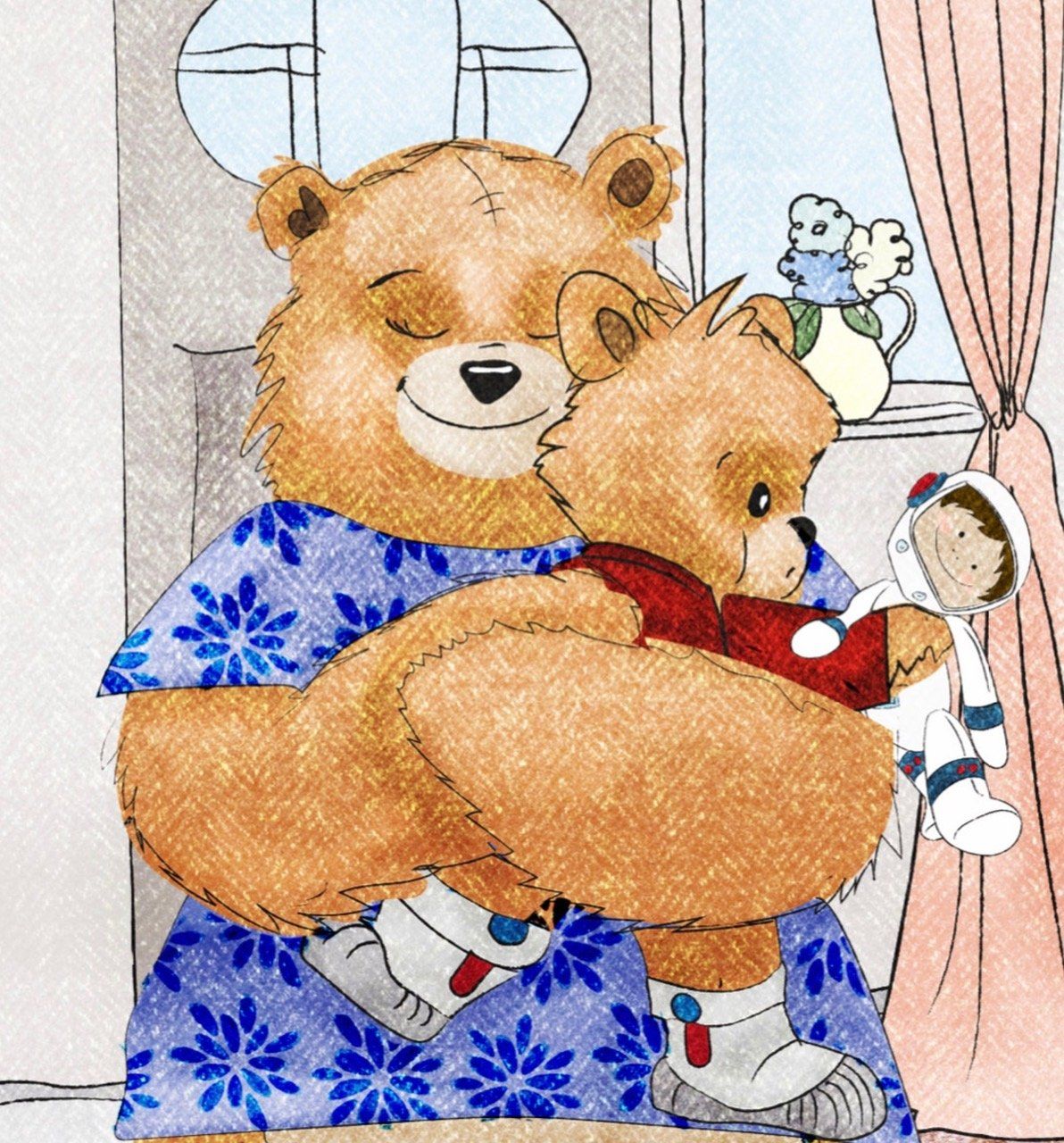
Where do I start? Attachment is a HUGE topic, with decades of research highlighting how important it is to a child’s development. But do you know what an attachment relationship actually is? And why it’s so important? Do you know what helps children develop more secure attachment relationships? With different approaches and a number of terms banded around it can feel so confusing. This blog addresses these questions and focuses upon ways that parents and educational settings can put attachment theory into practice. It is based upon my experience as a Clinical Psychologist. For over 15 years I have been drawing upon attachment theory to inform my work with parents and children. I’ve tried to ensure that my suggestions are user-friendly. As a mum of three I have learnt that theory does not always feel that easy to translate into practice. We can feel pressured to get it right all of the time (apologies to the clients I worked with before having my own children!). The beauty of attachment theory is that we don’t have to be perfect. Just good enough. As with anything scientific there can be a lot of jargon – I have put the key words in italics and tried to write with minimal psychobabble. I do hope you enjoy it! What is attachment (in a nutshell)?

In case you hadn’t noticed, Christmas is coming, and fast! It’s different this year, without nativity plays, big get togethers and light turn-ons. But it’s still happening, as both we, and our children well know! My three-year-old is already telling me that it is “Christmas tomorrow” on a daily basis (to be fair he also thinks it’s still Halloween so he’s not particularly accurate in his understanding of seasonal activities!). He is, however, starting to get excited. He’s remembering the elves escapades from last year, asking when they are coming back (I still haven’t found them in my cluttered house!). Why I added the nightly task of creating funny Elf scenes throughout December to the already huge list of Christmas jobs is beyond me, but at least he likes it! I was also quite proud of last year’s zip wire adventure.
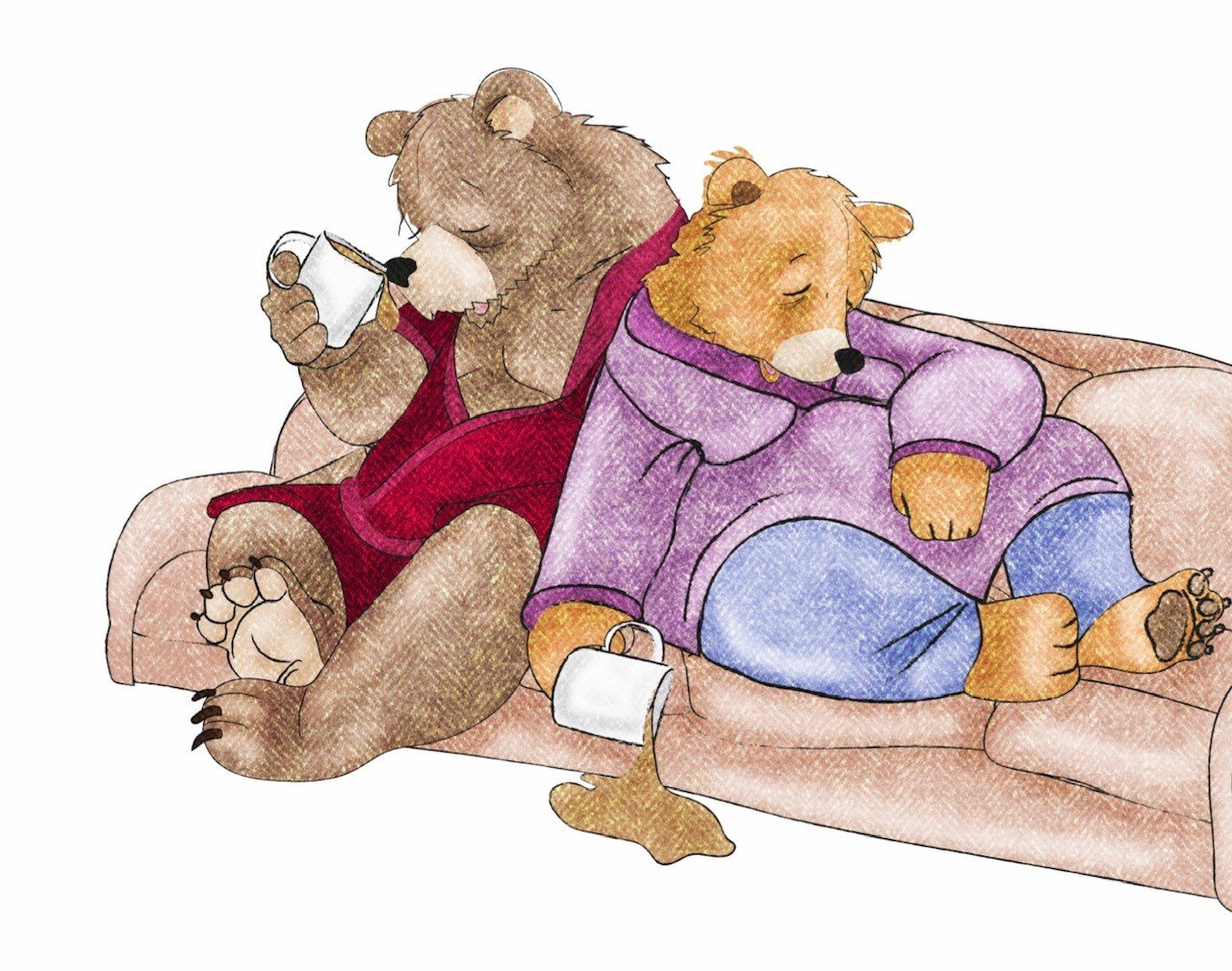
I know the gold standard for writing blogs is to deliver them on a fortnightly basis. I’ve been a bit remiss as this is my first one in months! What a better topic to start with then than why it is OK not to get things right all the time. Perfection is unobtainable, but it does seem to be something that we are pushed to do. The number of posts out there on mum guilt is astonishing. Over the last year we have been expected to juggle life in a way that does not seem possible. Many of us have been coping with (or trying to) being teachers, parents and professionals, three full time jobs all at the same time! This has left me wondering whether it’s actually possible to do anything well enough! And then along comes Christmas (gulp!). I’m hoping that reading this will leave you feeling happier with how you are doing as a parent, that you will realise that buying into the pressure to get it “right” is not helpful, and that you will learn that the attachment research highlights how we don’t need to be perfect to raise happy and healthy children. Children don’t need us all of the time. They need is a parent who knows they are good enough for them, accepts their foibles, makes and owns mistakes, and can manage their own emotional world. Forget Perfection - Strive for Good Enough Parents can feel a great deal of guilt around their work/life balance. Guilt can actually be a helpful emotion, allowing you to reflect on what is, and isn’t working. However, when you have little control over the things you want to change, it can feel overwhelming. The first thing you need to remember is that you are doing your best, and that is good enough. Interestingly, an article in the Economist reported that we spend twice as much time with our children as parents did 50 years ago (The Economist, November 27th 2017), suggesting that we are already much more active in our parenting than we used to be. “Good enough” is key to parenting. Research into attachment, which is important to children’s development, highlights how we should strive to be good enough, not perfect. A recent study on infant attachment found that parents need to be “in tune” with their babies about 50% of the time in order to develop secure attachment relationships (Woodhouse et al., 2019). So, if you’re getting it right about half the time, you’re onto something! Quality of Time is Far More Important than Quantity

